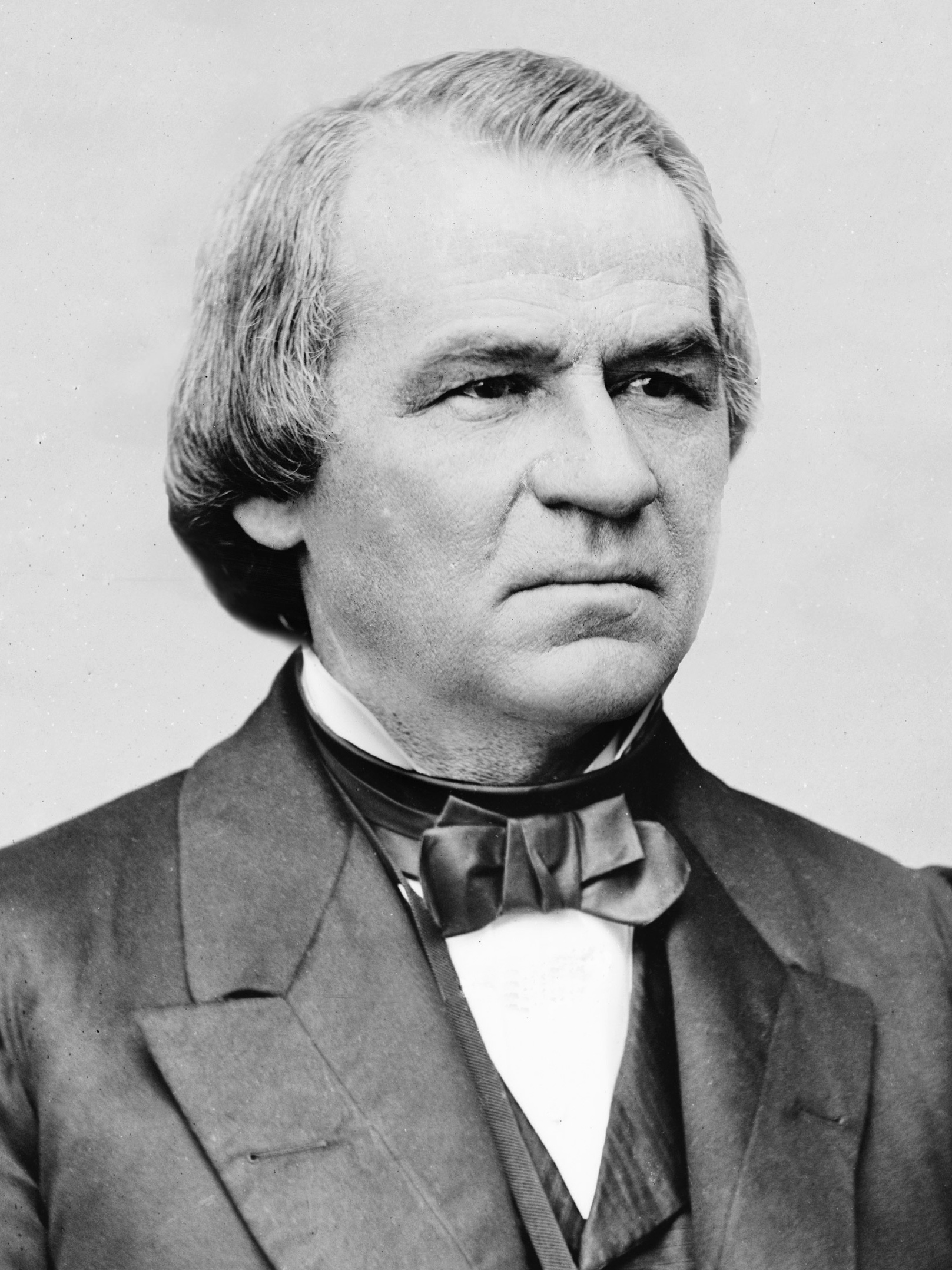In honor of President’s Day:
Andrew Johnson, the 17th POTUS, is way more interesting than he will ever be given credit for because of our tendency to filter history through a lens referred to as the Whig historiography, or in more modern parlance, the “progressive view of history”. I.e. there’s a steady line of improvement to the present day, and events of the past are struggles to reach this modern point. Johnson’s fairly unique and staunch deference to principle ought to be more widely discussed, but it won’t, because his views are no longer palatable in the modern day (rightly so); ergo, he is maligned as some cartoonish anti-progress villain pro forma instead being examined as a man living in a complicated world.

Johnson rose through the political ranks in Tennessee, and was a US Senator when the Civil War broke out. But he supported the Union, and was the only Senator in the Confederate states not to resign his office with the Union. He was assaulted and threatened with assassination for helping to oversee a plebiscite to remain in the Union. He was appointed military governor of the occupied state by Lincoln. At his request, Lincoln exempted Tennessee from the emancipation proclamation. However, Johnson soon oversaw a state law banning slavery, supporting the ban in part because it lead to the War, and in part because he felt that whites would end up destroying their society if they relied on black slaves to do all the literal heavy lifting. The Republicans nominated him as Lincoln’s VP to secure what was left of the southern Democrat vote and to at least try and show a sense of national unity in the midst of the War.
He barely met Lincoln before his assassination. Actually there were multiple targets, including Johnson, but the guy who was supposed to shoot him got shitfaced in a bar instead. Johnson explicitly permitted the execution of Mary Surrat, a conspirator in the Lincoln assassination, the first woman to be executed by the US government. He also put a $100k bounty out on Confederate president Jefferson Davis.
After the War, the question of reinstatement of the former Confederate states was a major political issue. Johnson advocated quick reinstatement, whereas Republican radicals wanted reinstatement based on a number of strict conditions. The Republican legislature laid out their demands for reinstatement in the Civil Rights Act of 1866, and reinforced them with the 14th Amendment, both of which Johnson vetoed. In our bias of a progressive view of history, we dismiss this as primitive racism. And to be fair, Johnson was a raging racist asshole. It didn’t help that he was probably our most pompous president since, well, Trump. He would argue with hecklers and compare himself to Jesus on campaign tours.
But, Johnson also made the pretty reasonable objection that “Hey, we just fought this whole bloody war to preserve the Union. We’re voting on these while 11 states are being barred from sending representatives to vote on this. I don’t care if you think they’re all horrible, we’re a democracy, and you can’t do that. I’m vetoing anything that isn’t adopted with all of the states present first.”
To which Congress Replied, “So, uh, we have a supermajority. Your veto is worthless.”
So he vetoed the bills, and Congress overrode the vetos. In retaliation, Congress passed the “Tenure of Office Act” which said that the President couldn’t fire anyone without permission of the Senate. Johnson didn’t care, and eventually (although genuinely reluctantly) tried to remove Secretary of War Edwin Stanton over concerns that he was undermining the reestablishment of Southern democracy, as unpalatable as they may have been. The House impeached him. The Senate had their own political concerns. Because Johnson had no VP, the Senate President pro tempore was next in line, at the time an Ohio lame duck Senator named Wade, who was “radical” even by Republican standards of the time (supporting things such as women’s suffrage), and was seen as an obstacle to an imminent Grant administration. Horsetrading led to acquittal by a single vote.
He spent most of his term in pointless pissing matches with Congress. He floated bills to limit the POTUS’ term to one 6-year stint and direct election of the POTUS and US Senators that obviously went nowhere. However, he did have success with his secretary of state, William Seward, who bought Alaska from the Ruskies for $7.2 million (Alaska has pulled in ~$2,700 million a year in oil since 1959).
He actually switched back to the Democratic Party in his re-election bid, which he narrowly lost at the convention. After obviously not getting re-elected, he went back to Tennessee, where he ran for a seat to Congress as an independent and lost. But he would run again for US Senate, and won, making him the only POTUS to return to the Senate after service.
